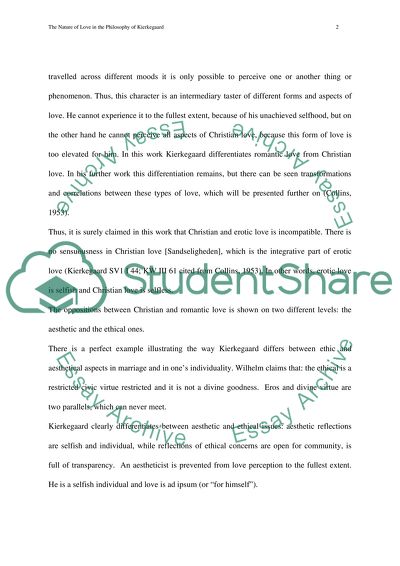Cite this document
(“The Nature of Love in the Philosophy of Kierkegaard Term Paper”, n.d.)
Retrieved from https://studentshare.org/philosophy/1430571-the-nature-of-love-in-the-philosophy-of
Retrieved from https://studentshare.org/philosophy/1430571-the-nature-of-love-in-the-philosophy-of
(The Nature of Love in the Philosophy of Kierkegaard Term Paper)
https://studentshare.org/philosophy/1430571-the-nature-of-love-in-the-philosophy-of.
https://studentshare.org/philosophy/1430571-the-nature-of-love-in-the-philosophy-of.
“The Nature of Love in the Philosophy of Kierkegaard Term Paper”, n.d. https://studentshare.org/philosophy/1430571-the-nature-of-love-in-the-philosophy-of.


